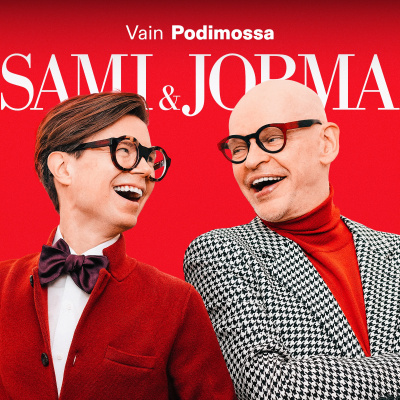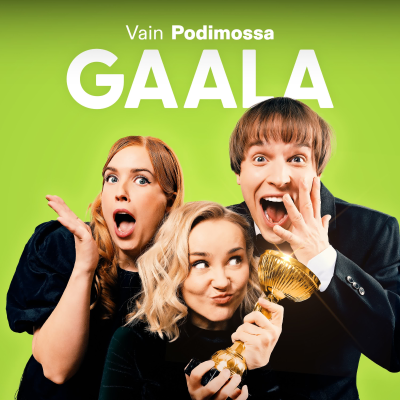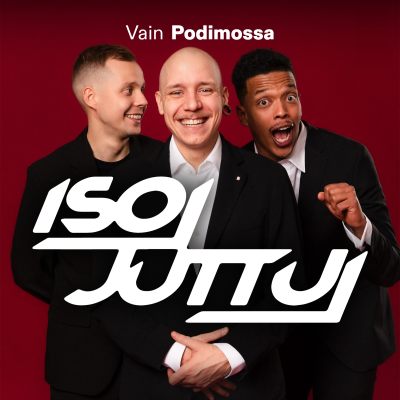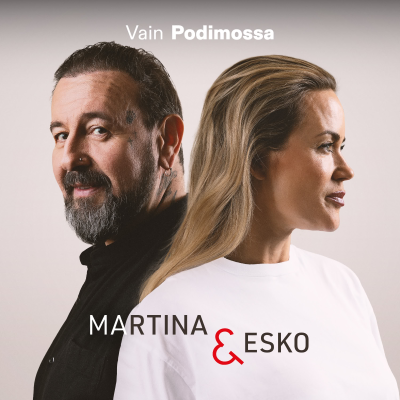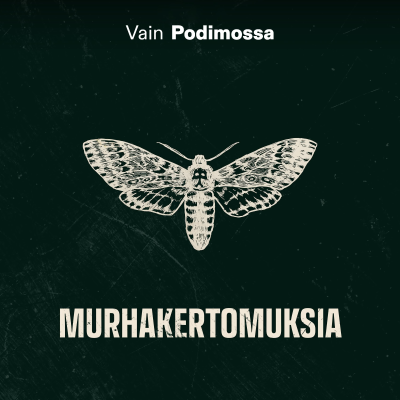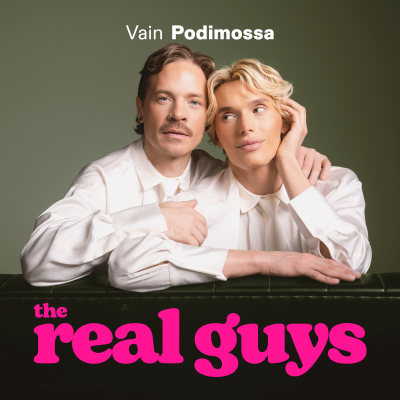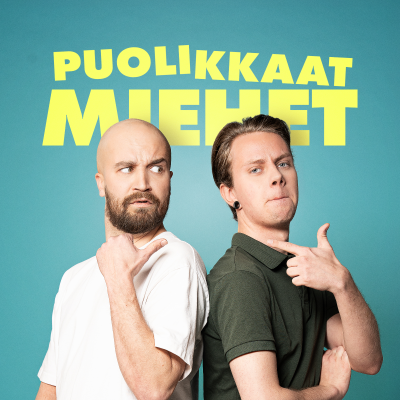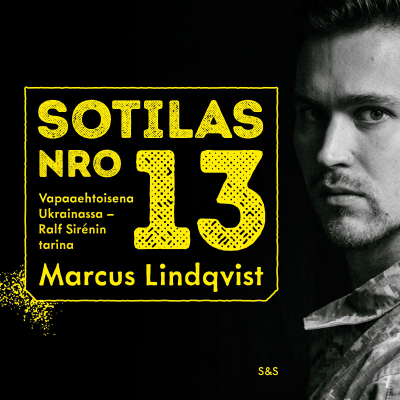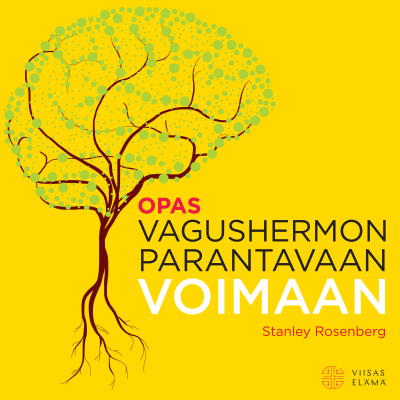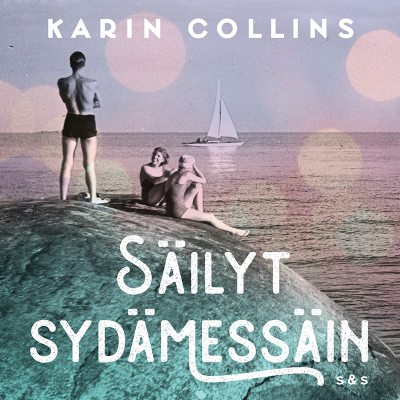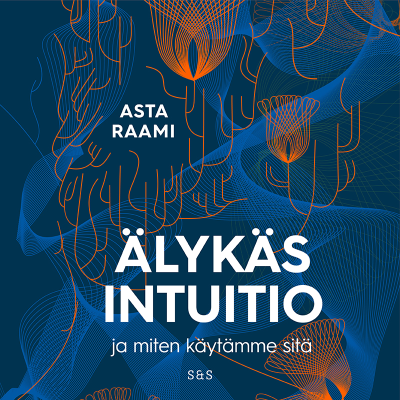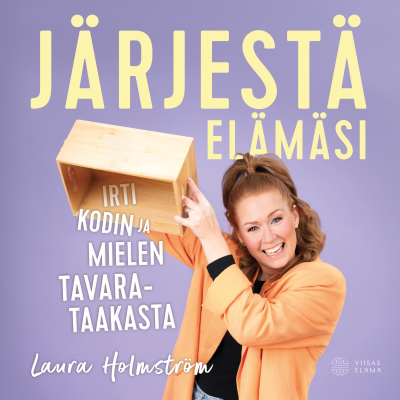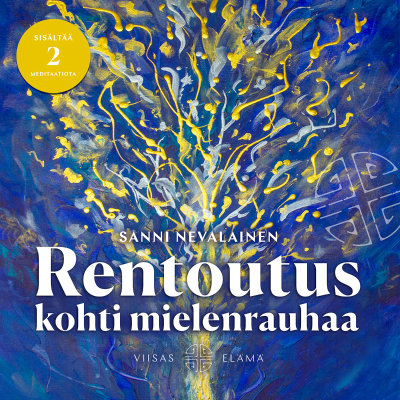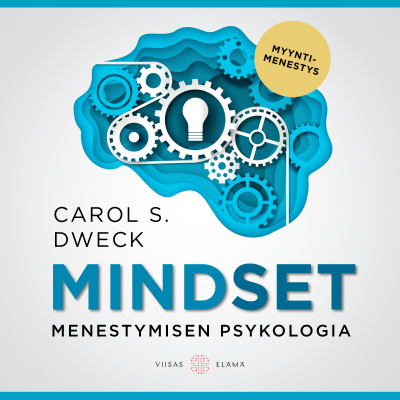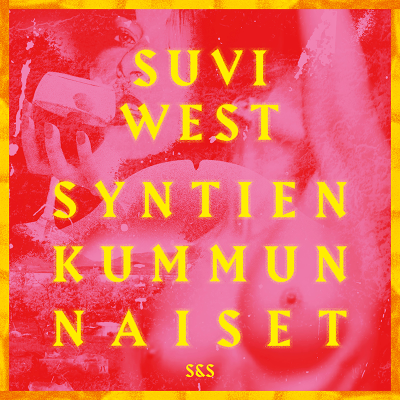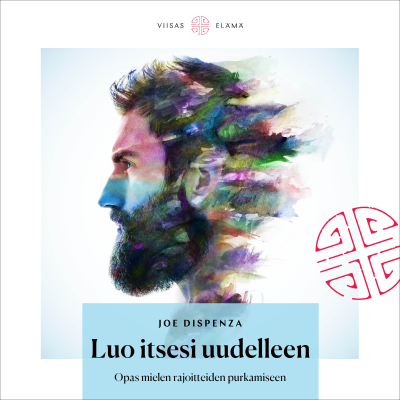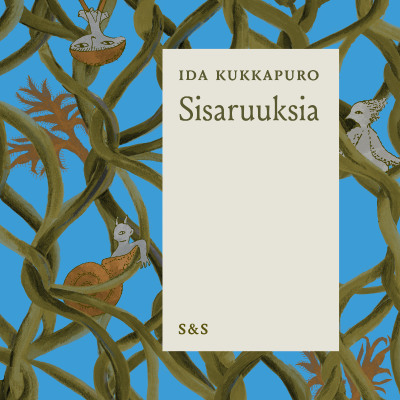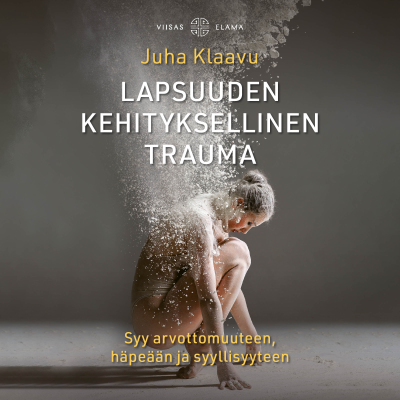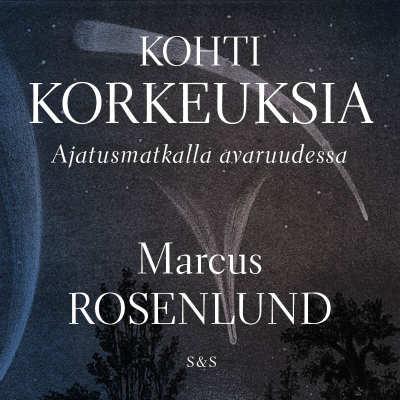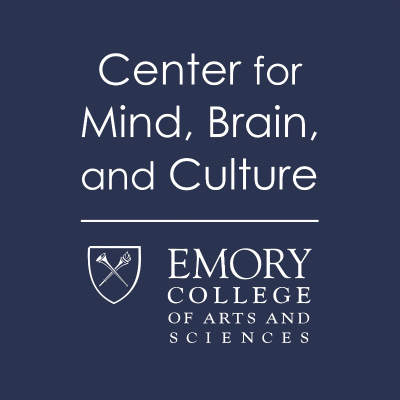
Center for Mind, Brain, and Culture
englanti
Teknologia & tieteet
Rajoitettu tarjous
2 kuukautta hintaan 1 €
Sitten 7,99 € / kuukausiPeru milloin tahansa.
- Podimon podcastit
- Lataa offline-käyttöön
Lisää Center for Mind, Brain, and Culture
What is the nature of the human mind? The Emory Center for Mind, Brain, and Culture (CMBC) brings together scholars and researchers from diverse fields and perspectives to seek new answers to this fundamental question. Neuroscientists, cognitive psychologists, biological and cultural anthropologists, sociologists, geneticists, behavioral scientists, computer scientists, linguists, philosophers, artists, writers, and historians all pursue an understanding of the human mind, but institutional isolation, the lack of a shared vocabulary, and other communication barriers present obstacles to realizing the potential for interdisciplinary synthesis, synergy, and innovation. It is our mission to support and foster discussion, scholarship, training, and collaboration across diverse disciplines to promote research at the intersection of mind, brain, and culture. What brain mechanisms underlie cognition, emotion, and intelligence and how did these abilities evolve? How do our core mental abilities shape the expression of culture and how is the mind and brain in turn shaped by social and cultural innovations? Such questions demand an interdisciplinary approach. Great progress has been made in understanding the neurophysiological basis of mental states; positioning this understanding in the broader context of human experience, culture, diversity, and evolution is an exciting challenge for the future. By bringing together scholars and researchers from diverse fields and across the college, university, area institutions, and beyond, the Center for Mind, Brain, and Culture (CMBC) seeks to build on and expand our current understanding to explore how a deeper appreciation of diversity, difference, context, and change can inform understanding of mind, brain, and behavior. In order to promote intellectual exchange and discussion across disciplines, the CMBC hosts diverse programming, including lectures by scholars conducting cutting-edge cross-disciplinary research, symposia and conferences on targeted innovative themes, lunch discussions to foster collaboration across fields, and public conversations to extend our reach to the greater Atlanta community. Through our CMBC Graduate Certificate Program, we are training the next generation of interdisciplinary scholars to continue this mission.
Kaikki jaksot
303 jaksotLecture | Shaun Gallagher "Compassion: Real and Artificial"
Shaun Gallagher | Lillian and Morrie Moss Professor of Philosophy | University of Memphis "Compassion: Real and Artificial" I’ve proposed a pattern theory of compassion. On this view, compassion is a specific pattern of dynamically related factors that include physiological, cognitive, and affective processes, relational/intersubjective processes, and motivational/action tendencies (Gallagher, Raffone, Aglioti 2024). The idea of compassion as a dynamical pattern is reflected in neuroscientific findings, as well as in compassion practice. This view also allows for a clear distinction between compassion, empathy, and sympathy. Following Dennett’s conception of “real pattern,” compassion can be said to have a pragmatic reality. After summarizing this view I’ll address a question (raised by both computer scientists and Buddhist scholars) about the possibility of creating a compassionate AI system. Can there be such a thing as artificial compassion? If you would like to become an AFFILIATE [https://cmbc.emory.edu/about/join.html] of the Center, please let us know. Subscribe to our YouTube channel [https://www.youtube.com/@emorycmbc1507] to get updates on our latest videos. Follow along with us on Instagram [https://www.instagram.com/emorycmbc/] | Facebook [https://www.facebook.com/EmoryCenterForMindBrainAndCulture/] NOTE: The views and opinions expressed by the speaker do not necessarily reflect those held by the Center for Mind, Brain, and Culture or Emory University.
Lecture | Deepu Murty "Understanding, Remembering, and Communicating Threatening Events"
Deepu Murty [https://cas.uoregon.edu/directory/psychology/all/murty] | Associate Professor, Chair of the Committee for an Inclusive Community Psychology | University of Oregon "Understanding, Remembering, and Communicating Threatening Events" Threat alters how we represent information. Under threat, individuals tend to prioritize central details at the expense of surrounding contextual information—a shift that reflects and drives changes in medial temporal lobe (MTL) and cortical network dynamics. This talk will explore how threat reshapes the neural architecture supporting event comprehension, which has downstream consequences on how this information is stored in long-term memory. Moreover, we will show how these shifts in brain networks change how threatening experiences are communicated to others. By examining the interplay between emotion, memory, and social dynamics, we highlight mechanisms through which threat can distort shared understanding and social transmission of information. These findings have broad implications for domains ranging from eyewitness testimony to psychotherapy, which both rely on the accurate communication of threatening events. If you would like to become an AFFILIATE [https://cmbc.emory.edu/about/join.html] of the Center, please let us know. Subscribe to our YouTube channel [https://www.youtube.com/@emorycmbc1507] to get updates on our latest videos. Follow along with us on Instagram [https://www.instagram.com/emorycmbc/] | Facebook [https://www.facebook.com/EmoryCenterForMindBrainAndCulture/] NOTE: The views and opinions expressed by the speaker do not necessarily reflect those held by the Center for Mind, Brain, and Culture or Emory University.
Lecture | David Sloan Wilson "Mind, Brain, and Culture from a Generalized Darwinian Perspective"
David Sloan Wilson | Professor Emeritus, Department of Anthropology / Biological Sciences Binghamton University | State University of New York "Mind, Brain and Culture from a Generalized Darwinian Perspective" Generalized Darwinism refers to any process combining the three ingredients of variation, selection, and replication (VSR). It is both old and new: Old, because all the insights associated with Darwinism during its first few decades were in ignorance of the proximate mechanisms of VSR. New, because with the advent of Mendelian genetics, the entire study of evolution became focused on genes, to the exclusion of other VSR processes. A return to generalized Darwinism didn’t commence until the closing decades of the 20th century and is now in full swing, with profound implications for our understanding of mind, brain, and culture. Link to ProSocial World website: https://www.prosocial.world/ If you would like to become an AFFILIATE [https://cmbc.emory.edu/about/join.html] of the Center, please let us know. Subscribe to our YouTube channel [https://www.youtube.com/@emorycmbc1507] to get updates on our latest videos. Follow along with us on Instagram [https://www.instagram.com/emorycmbc/] | Facebook [https://www.facebook.com/EmoryCenterForMindBrainAndCulture/] NOTE: The views and opinions expressed by the speaker do not necessarily reflect those held by the Center for Mind, Brain, and Culture or Emory University.
Lunch | Apurva Ratan Murty & Jared Medina "To Predict or To Explain"
Apurva Ratan Murty | Assistant Professor, Psychology | Georgia Institute of Technology Jared Medina | Associate Professor, Psychology | Emory University "To Predict or To Explain" What is even the point of our science? Is it to build models that predict what brains and minds will do even if we don’t fully understand how, or is it to explain the inner workings of the mind and brain, even if our models fall short of accurate predictions or practical mental health benefits. In this debate-styled meeting, Jared Medina will argue for explanation as the soul of science. Without causal, interpretable, mechanistic accounts, we’re just playing with high-tech models and curve-fitting. For him the goal of our science is about generating understanding in human interpretable terms. On the opposing side, Apurva Ratan Murty will champion prediction as the only reliable test of scientific understanding. If your theory can’t predict new data, it has limited value. Models that generalize, however messy or uninterpretable, are the real engines of discovery and measure of progress. This brings us to the core of the conflict. Is prediction sufficient for explanation, or even preferable? Can we trust models we do not understand, or does demand for interpretability needlessly limit our predictive power? Should we be architects of models as tools to describe, anticipate, and control brain behavior, or storytellers who illuminate the architecture of the mind? Join us as we debate these foundational questions and consider what our field should value most and how these seemingly opposing frameworks co-exist. If you would like to become an AFFILIATE [https://cmbc.emory.edu/about/join.html] of the Center, please let us know. Subscribe to our YouTube channel [https://www.youtube.com/@emorycmbc1507] to get updates on our latest videos. Follow along with us on Instagram [https://www.instagram.com/emorycmbc/] | Facebook [https://www.facebook.com/EmoryCenterForMindBrainAndCulture/] NOTE: The views and opinions expressed by the speaker do not necessarily reflect those held by the Center for Mind, Brain, and Culture or Emory University.
Lecture | Gil Weinberg "Embodied Creative Machines"
Gil Weinberg | Professor, School of Music and Founding Director of the Center for Music Technology | Georgia Institute of Technology "Embodied Creative Machines" Human creativity is directly linked to embodied interaction with the physical environment. At the Robotic Musicianship Group at Georgia Tech, we explore how embodiment effects and enhances both human and artificial creativity. The talk will present a wide range of robotic projects developed at Georgia Tech Center for Music Technology over the last 20 years, from robotic musicians that compose, improvise, and interact with humans in a variety of musical genres, through robotic dancers that respond to human movement, to prosthetic robotic arms that enable amputees to play musical instruments. Gil Weinberg is a professor and the founding director of Georgia Tech Center for Music Technology, where he leads the Robotic Musicianship group. His research focuses on developing artificial creativity and musical expression for robots and augmented humans. Among his projects are a marimba playing robotic musician called Shimon that uses machine learning for Jazz improvisation, and a prosthetic robotic arm for amputees that restores and enhances human drumming abilities. Weinberg presented his work worldwide in venues such as The Kennedy Center, The World Economic Forum, Ars Electronica, Smithsonian Cooper-Hewitt Museum, SIGGRAPH, TED-Ed, DLD and others. His music was performed with Orchestras such as Deutsches Symphonie-Orchester Berlin, the National Irish Symphony Orchestra, and the Scottish BBC Symphony while his research has been disseminated through numerous journal articles and patents. Dr. Weinberg received his MS and PhD degrees in Media Arts and Sciences from MIT and his BA from the interdisciplinary program for fostering excellence in Tel Aviv University. Gil Weinberg :: https://www.gilweinberg.com/ SEE BELOW FOR SOME OF THE VIDEOS PREVIEWED IN PRESENTATION. THE AGE OF AI :: https://youtu.be/UwsrzCVZAb8?si=9rfi3NSCwIe1n0NR&t=863 SHIMON IN CONCERT :: https://youtu.be/zG8VWPL35qI?si=54IKr0E8ax26x9Jc BRAINWAVES / “FISH AND CHIPS” :: https://www.gilweinberg.com/brainwaves?pgid=m2acvhzk1-f5d71d01-9eb3-4cae-a336-1dbf7f335ade EYEDRUM EXHIBITION :: https://www.gilweinberg.com/brainwaves?pgid=m2acvhzk1-c6092737-f02b-4a58-942b-42e685ea9595 NERVE BEATBUGS :: https://youtu.be/B7WlkVGH1fs?si=I2xWeoqUOWVCPBkc HAILE :: https://youtu.be/OT2Lp00ib1Y?si=jPupqd-Qb9gCYuHE THREE-ARMED DRUMMING :: https://youtu.be/fKryPingtww?si=U7SrChs-n-5ctTZW DRUMMING PROSTHETIC CONCERT @ KSU :: https://youtu.be/6xc2_p-q9tU?si=I7tnesxJyhQUpNAn JASON BARNES EMG PROSTHETIC ARM SHOWCASE :: https://youtu.be/4rakPJHH7KU?si=sUrBc2zlTiCYvhSy JASON BARNES - GUINESS WORLD RECORDS :: https://youtu.be/cVFcJ3TMrok?si=C104ssuxrU6Hn_SK WORLD’S FIRST BIONIC DRUMMER :: https://youtu.be/GKW7cg45EwY?si=1jBmN1ABFXiP-lxb SKYWALKER HAND :: https://youtu.be/8t8p43m1Iuw?si=SKhs2BTMX6qP-GXz GIL WEINBERG: LUKE SKYWALKER PROSTHESIS CONTROLS FINGERS AND PLAYS PIANO :: https://youtu.be/HjW1kIt5iQg?si=kHcuIHgsLnAWJvMy If you would like to become an AFFILIATE [https://cmbc.emory.edu/about/join.html] of the Center, please let us know. Subscribe to our YouTube channel [https://www.youtube.com/@emorycmbc1507] to get updates on our latest videos. Follow along with us on Instagram [https://www.instagram.com/emorycmbc/] | Facebook [https://www.facebook.com/EmoryCenterForMindBrainAndCulture/] NOTE: The views and opinions expressed by the speaker do not necessarily reflect those held by the Center for Mind, Brain, and Culture or Emory University.
Valitse tilauksesi
Rajoitettu tarjous
Premium
Podimon podcastit
Lataa offline-käyttöön
Peru milloin tahansa
2 kuukautta hintaan 1 €
Sitten 7,99 € / kuukausi
Premium
20 tuntia äänikirjoja
Podimon podcastit
Lataa offline-käyttöön
Peru milloin tahansa
30 vrk ilmainen kokeilu
Sitten 9,99 € / kuukausi
Premium
100 tuntia äänikirjoja
Podimon podcastit
Lataa offline-käyttöön
Peru milloin tahansa
30 vrk ilmainen kokeilu
Sitten 19,99 € / kuukausi
2 kuukautta hintaan 1 €. Sitten 7,99 € / kuukausi. Peru milloin tahansa.





